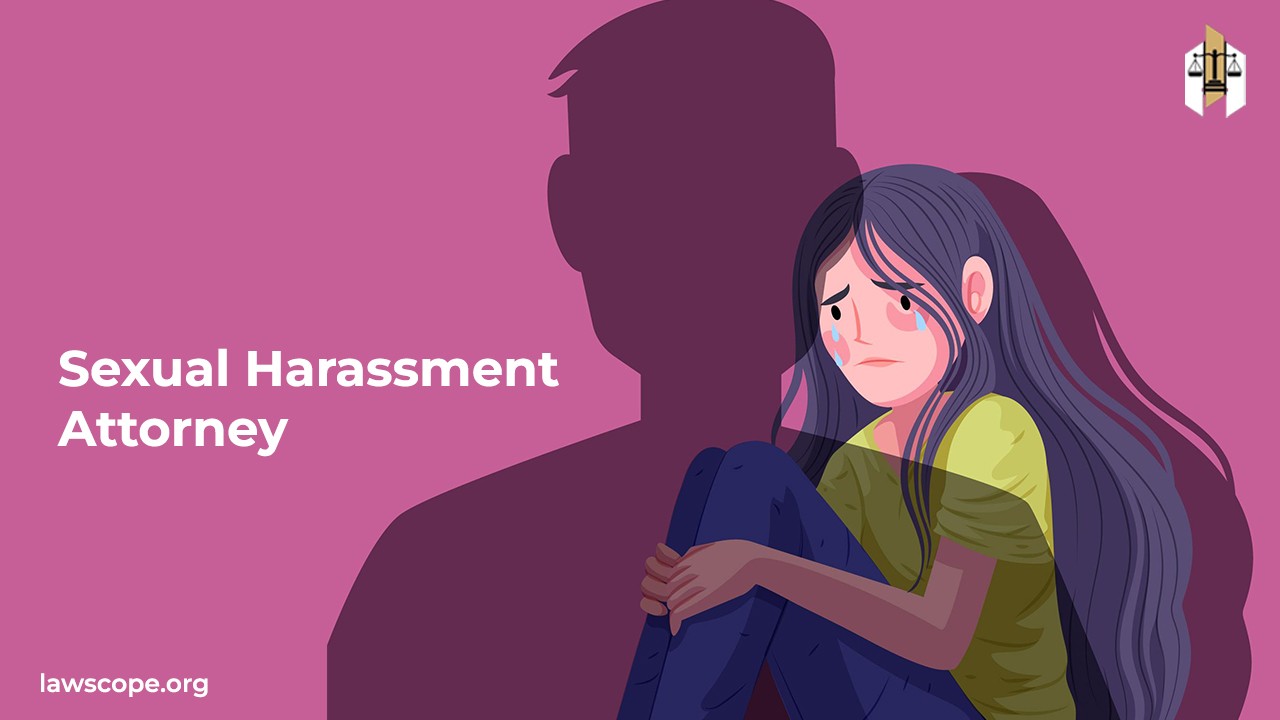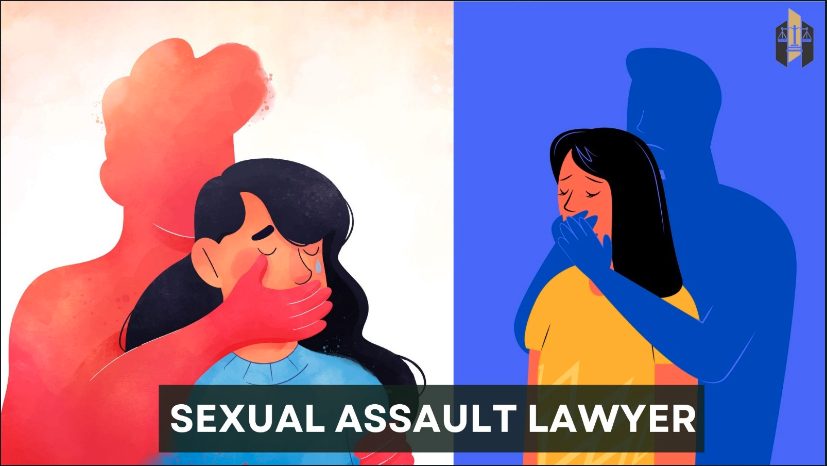what is considered sexual assault?
It is an utterly challenging phenomenon that has a detrimental impact on the lives of many people, specifically concerning sexual assault.
Understanding what constitutes discussions on sexual attacks, understanding consent, profiling of perpetrators, and supportive rights for victims can go a long way in creating awareness and helping the victims.
This guide is written with the objective of explaining them objectively and with compassion so that readers can be well-equipped with relevant information when confronted with these sensitive issues.
What Is Considered Sexual Assault?

It is important to define what sexual assault is since there is so much prejudice around those who have been assaulted.
Sexual assault comes in many forms but it is crucial and of vital importance to understand and remember always that it is never the fault of the victim.
It is sexual assault if force or coercion was used and the actions were non-consensual i.e. the actions were not wanted or agreed by the nature of consent, want, desire, and preference.
Here are some examples of sexual assault:
- Attempted rape.
- This one involves using the hands to touch the victim inappropriately, for instance by rubbing or poking their body areas in a sexually suggestive and provocative manner.
- Coercion someone to put his or her genitals or anus in another’s mouth, for example, Due – They have to perform oral sex.
- Rape: This is when there is forceful and unlawful sexual activity or insertion of any object or any part of the body into another’s genital.
Other related sexual crimes include:
- Sexual harassment.
- Solicitation of minors.
- Possession of child pornography
This way, the distinctions of these definitions are as follows and they will help to improve the situation with sexual assault.
What Is Rape?

One should understand that rape is a type of sexual assault but it is essential to know that all sexual assaults do not mean all are rapes.
From a juridical perspective, rape is defined as making an object penetrate a person’s genitalia without her consent.
The FBI finally revised its definition of rape: These include sexual assault ‘‘as defined as penetration, no matter how slight, of the vagina or the anus with any part of the body or with any object or any penile, friction or contact, whether by the victim or another, if the victim is incapable of giving consent.
Force in Sexual Assault
Force is not necessarily muscle or physical strength.
Physical force by any means may not always be necessary; the aggressor may attempt to compel someone into having sex through verbal pressure, threats, or subtle influence.
Such things include threats to the life of the victim and or their family’s life, and or any kind of coercion.
Consent in Sexual Assault
In many cases of sexual assault, the main issue which is often a contentious one, is whether there was consent given. Consent can also be understood as the willingness of all parties for sexual intercourse.
The dictionary date: If consent is not given, the act is called an assault.
Here are some key points about consent:
Changing Their Mind: Consent is mutable which implies that a person can withdraw his/her consent for sexual activities at any one concentration.
Limited Consent: It is only consent to one instance of sexual advance meaning they do not consent to more or subsequent advances.
Past vs. Future Consent: As pointed out by the court above, consent given for past or current acts does not mean consent for future acts.
Communication: Consent means an agreement in any form such as permitting through words, or changes in verbal or facial gestures.
Vulnerable Groups: It is said that the minimum age of consent is particularly low, and applies to minors, with sixteen years being the most common age limit for sexual consent in different states.
Persons with developmental or intellectual impairment also are unable to consent to engaging in sexual activities.
Who Are The Perpetrators?

It is also imperative that it is clear that the majority of child sexual assault cases occur within the perpetrators’ circles that the child moves in.
Similarly, other studies have noted that a staggering 80% of the population raped knows the perpetrator.
This can be intimate partner sexual violence often defined as dating violence or sexual assault committed by a stranger.
Acquaintance Rape
Another form is “acquaintance rape” which is an act of sexual assault committed by someone the victim knows; it can be a date, a classmate, a neighbor, a friend’s boyfriend/husband, etc.
Another thing to consider is that, even though two people might have been dating or had intimate relations or engaged in such activities as kissing, they are not able to give consent for further interference.
Stranger Rape
In some instances, the victim does not know the perpetrator in any way, and it wasn’t a person’s conduct or behavior that caused them to become the target of a criminal.
This is known as “stranger rape,” and it can happen in several ways:
Blitz Sexual Assault: The offender suddenly and without prior acquaintance confronts the victim with force, and the crime, if it occurs, takes place at night in a public area.
Contact Sexual Assault: By intrigues, threats, or outright force, a perpetrator will attempt to engage the victim in romantic manners by flirting with them, or by leading the victim to the car, or someplace, where the rape would take place.
Home Invasion Sexual Assault: An unfamiliar person invades the victim’s house with the intent to sexually abuse the victim.
Self-Blame and Victim Responsibility
Every woman who has been raped by a stranger and a friend believes that she was in some ways asking for it, that she somehow urged forward the assaulter.
For the record, one has to remember that the victim has no reason whatsoever; to be at the receiving end of a perpetrator’s actions.
What Are Your Rights After a Sexual Assault Incident?

When it comes to the incidents of sexual assault, there are various rights that the victims are protected under the legal systems of different countries.
Any lady of legal age can report the incident that was done to her or even pursue the legal means of punishing the aggressor.
Ending with filling out a report on the incident, and getting a medical checkup to record any outcomes on the physical being.
Though it might feel harrowing to pursue justice after a sexual assault, it may signify one of the most important steps toward healing.
Despite the fact that the Pentagon has employed more female employees, studies show that men are more likely to be aggressive toward women.
Acknowledgment oftentimes can be very daunting, as it means reliving the experience to people other than the aggressor.
However, pursuing legal action against the perpetrator can provide several benefits:
Peace of Mind: The knowledge that the perpetrator is behind bars can help some survivors find solace after a long trial.
Prevention of Future Incidents: A lawsuit may be pursued in order to prevent the abusive person from hurting other people.
Empowerment: It is in this light that resorting to the legal process empowers a victim, and provides them with an avenue of control that is exercised after an assault.
Indeed, whenever the victims are aware and willing to exercise their rights as provided by law, significant healing and justice processes can begin.
Source:
- https://www.rainn.org/articles/sexual-assault
- https://florinroebig.com/sexual-assault-guide/
- https://sexualviolence.universityofcalifornia.edu/faq/
Final Talks
To create an aware society that has proper knowledge of sexual assault, consent, and perpetrators, as well as to support the victims of sexual assault, we must learn more about several key aspects of sexual assault.
It means that through increasing knowledge and awareness, preventing and assisting the victims, and making the society safer for all.
It always restores the feelings of rights as a victim to use them and having the knowledge can be part of the healing process these victims need to endure in the future.
You May Like Also:
- Florida LGBTQ Laws: Everything At One Place
- Assault Laws: Your Rights and Legal Options Explained
- LGBT Rights In The United States: Everything You Must Know
- Florida Anti-LGBTQ Laws: Examining The Legal Ramifications
- Protecting LGBTQ+ Employees From Sexual Harassment: A Guide For Lawyers and Employers





Leave a Reply